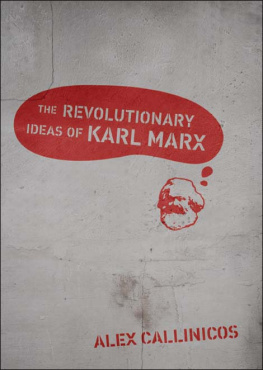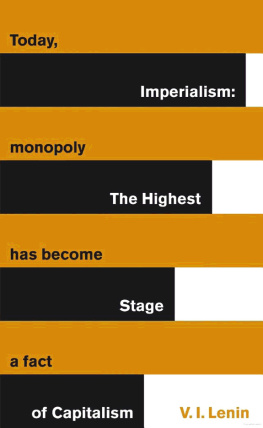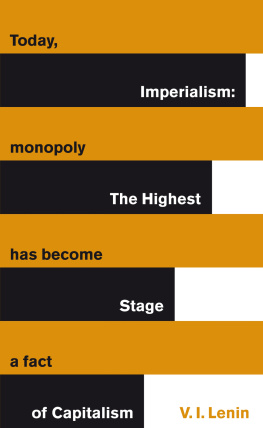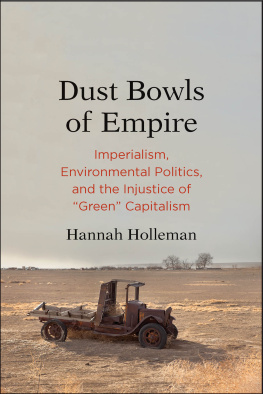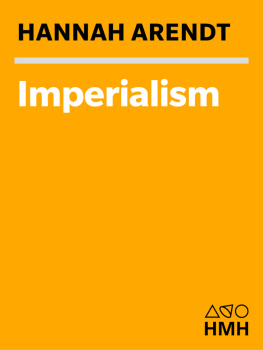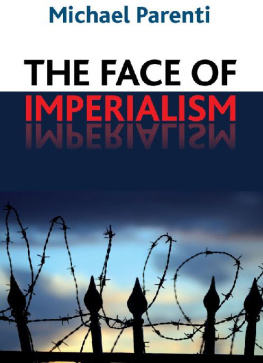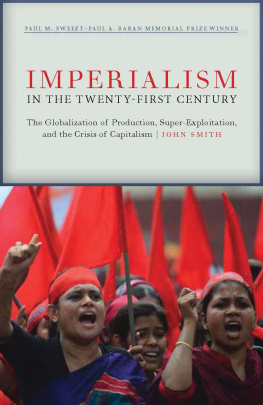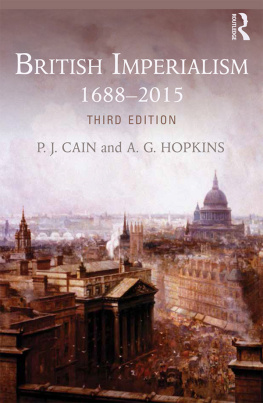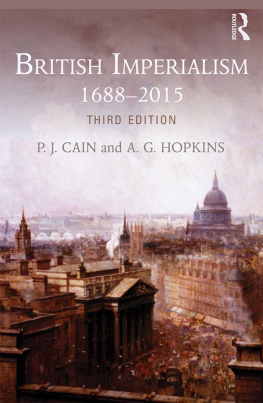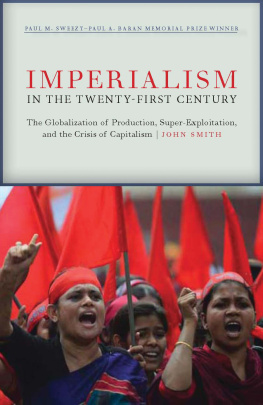PREFACE AND ACKNOWLEDGEMENTS
Imperialism, to many peoples surprise, survived the Cold War. More to the point, it has also survived the presidency of George W. Bush. So it is an important subject. I have been fortunate enough to write about it during what can only be considered a great renaissance of the Marxist theory of imperialism. This has allowed me to develop my own ideas in dialogue and sometimes in confrontation with many of the leading contributors to this revival. Thanks to a variety of social forums, congresses and conferences, mostly generated by the contemporary movements against neoliberal globalization and imperial war, I have been able to debate with, and learn from, Gilbert Achcar, Samir Amin, Giovanni Arrighi, Daniel Bensad, Bob Brenner, Frank Deppe, Peter Gowan, Michael Hardt, David Harvey, David McNally, Toni Negri, Leo Panitch and Claude Serfati.
I have also benefitted from being allowed to present the thought that forms the subject of chapter 2 of this book that there is a necessary relationship between capitalism and the international state system in various forums, including the Cambridge Review of International Affairs . I am grateful to the editors of this journal, and particularly to Alex Anievas, who has both orchestrated and contributed to a much more extensive debate about Marxism, the international, and uneven and combined development in the pages of CRIA . It has also helped to have had the opportunity to present my ideas to seminars at Birmingham, Cambridge, London Metropolitan, and Nottingham universities, and at Goldsmiths College, to the Historical Sociology Group of the British International Studies Association, and to the 7th International Relations Conference of the Middle East Technical University in Ankara. My thanks to all involved, and perhaps especially to Gonso Pozo-Martin for his searching criticisms both in print and in discussion.
Sam Ashman, Chris Harman, Nigel Harris, Justin Rosenberg, Andrew Wright and an anonymous reviewer all read this book in draft and made very helpful comments. Both Sam and Andrew are engaged in research of their own, some of whose findings overlap with my arguments; I am very grateful to the intellectual support their work has given me. My correspondence and conversations with Justin have provided enormous stimulus and pleasure. Chris and Nigel wrote at once the most detailed and much the rudest comments, showing that old comrades may diverge politically without losing the robust intellectual training all three of us received from the late Tony Cliff. I particularly appreciate Nigels patience and kindness in sticking with a train of thought that he regards as thoroughly misguided.
At Polity David Held suggested that I write a short book about imperialism and has taken this much longer one on the chin. I am grateful to him and also to Clare Ansell, Helen Gray and Sarah Lambert for guiding the book to publication.
My biggest debt, however, is to Sam Ashman. We have talked non-stop about many of the topics that I have ended up writing about in this book. My debt to her is enormous, not just intellectually, but also for the support she has provided in what have proved to be quite stressful times. It is in token of what I owe that I am dedicating this book to her.
INTRODUCTION: EMPIRE OF THEORY, THEORIES OF EMPIRE
Empire is back with a vengeance. This is largely because the thing imperialism has increasingly obtruded itself on us all over the past few years, till now all the blood and clamour, the colonial expeditions and the grand financial and commercial manoeuvres are quite inescapable and undeniable. But, as historians have noted, empires have often disavowed themselves, and here there was a marked discursive shift in the United States, most notably during the administrations of George W. Bush. The journalist Ron Suskind reports a remarkable conversation with a senior adviser to Bush during the summer of 2002, when the drums of war against Iraq were beating ever louder:
The aide said that guys like me were in what we call the reality-based community which he defined as people who believe that solutions emerge from your judicious study of discernible reality. I nodded and murmured something about enlightenment principles and empiricism. He cut me off. Thats not the way the world really works anymore, he continued. Were an empire now, and when we act, we create our own reality. And while youre studying that reality judiciously, as you will well act again, creating other new realities, which you can study too, and thats how things will sort out. Were historys actors and you, all of you, will be left to just study what we do.
These remarks reverberate with a hubris that was soon enough to meet its nemesis at the hands of the armed resistance to the occupation of Iraq by the US and its allies. But the willingness to conceive America explicitly as an empire is by no means confined to the right-wing nationalists and neoconservatives who drove US global policy under the younger Bush. In the 1990s, Zbigniew Brzezinski, National Security Adviser to President Jimmy Carter, an influential figure in Bill Clintons administrations, and a ferocious critic of the Iraq adventure, was also willing to view the world in explicitly imperial terms:
Americas global supremacy is reminiscent in some ways of earlier empires, notwithstanding their more confined regional scope. These empires based their power on a hierarchy of vassals, tributaries, protectorates, and colonies, with those on the outside generally viewed as barbarians. To some degree, this anachronistic terminology is not inappropriate for some of the states currently within the American orbit.


